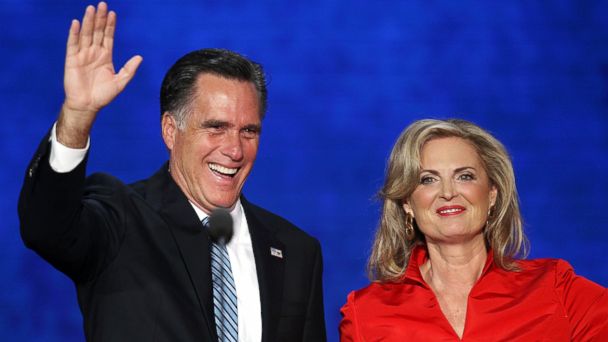How GOP Plans to Save Its Presidential Nominees From Itself

(John Tlumacki/The Boston Globe/Getty Images)
At the RNC winter meeting today, the party approved rule changes by a 153-9 vote that would make the Republican primary much shorter and the general election longer, pushing the nominating convention up by nearly two months.
"It really is about winning the White House," said Henry Barbour, a Republican National Committee member who sat on the committee that drafted the rule changes. "We're tired of being out of the White House."
After some soul searching following Mitt Romney's loss in 2012, the attention turned to how Republicans could avoid a long nominating process that was too expensive and too damaging to the party's nominee before that person even faced a Democratic opponent.
And its easy passage at the meeting today was a sign of strength for RNC Chairman Reince Priebus, said Ken Kaufman, a GOP committeeman from Massachusetts.
"This is where Reince became a very strong leader," he said. "We can't usually decide on pizza."
So here's how the rules are changing:
1. Earlier convention
Come 2016, the Republican convention will be held sometime in June or early July rather than in late August like it was in 2012. At minimum, it would extend the general election officially by at least seven months for the Republican nominee.
That means both more time for the Republican to face off against the Democratic nominee without having to stave off challengers in his own party, and it gives outside groups who in 2012 spent millions on the presidential race, more time to unite behind a single candidate.
"It gets personal among your supporters and among your contributors and it takes time to heal, it really does," said former Nevada governor Bob List. "You can't have a convention in September-which we did in Minneapolis-and expect to come together by November."
With more Americans than ever voting early and campaign ads becoming ubiquitous on the airwaves, the changes may give the GOP nominee more time to raise general election money and reach voters who are making up their minds earlier.
2. Compressed primary
To accomplish an earlier convention, primary contests will have to be compressed into a shorter time frame.
Any states trying to jump the line and beat the traditional first in the nation states, New Hampshire, South Carolina, Iowa, and Nevada, by holding their primary contests before March will face stiff penalties.
The RNC plans to bring down the hammer on rouge actors by slashing the number of voting delegates allotted to a state that breaks the rules in a way that could make rule breakers essentially a non-factor in the primary process.
Few candidates will want to spend millions campaigning in a state, only to have a chance at just a handful of delegates.
If the changes are successful, the 2016 primary could last-at the most-between February and mid-May.
3. Dishing out the delegates
And to help leading candidate quickly collect the delegates they need to claim the nomination, the party has changed the rules for how states are allowed to dole out their delegates.
In the 2012 election many states allotted their delegates proportionally based on how candidates performed in the primaries, which helped draw out the 2012 primary by giving longshot candidates a wider set of opportunities to pick up delegates.
The new rules would force a two week window in March when states who hold primary contests must distribute their delegates proportionally-a compromise that maintains a system some activists believe will help grassroots candidates compete against more well-funded candidates.
On or after March 15, delegates can be distributed either proportionally or winner-take-all, which could help a candidate lock up the nomination quickly.
Some elements of the party view this change as a power grab.
Those who still oppose them will have two more opportunities-at the spring and summer RNC meetings-to voice their concerns and push for changes.
"As a state we feel we should decide how we want to structure our rules and what we want," said Pat Mullins, Republican Party of Virginia chairman.
ABC News' Shushannah Walshe contributed to this report.